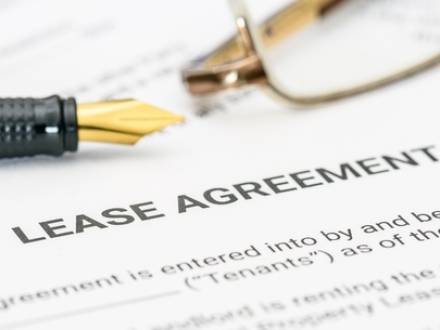What Counts as a "Material Breach" in a Residential Lease?
 In the state of Illinois, landlords are prohibited from evicting a tenant for relatively simple lease violations. To pursue eviction, the tenant must have committed a material breach of the lease. A material breach means the violation was serious and it undermined the core tenets of the rental agreement. But what qualifies as a material breach?
In the state of Illinois, landlords are prohibited from evicting a tenant for relatively simple lease violations. To pursue eviction, the tenant must have committed a material breach of the lease. A material breach means the violation was serious and it undermined the core tenets of the rental agreement. But what qualifies as a material breach?
Landlords who have a good understanding of the distinction between a material breach and a simple lease violation can better protect their rights, avoid court delays, and ensure any eviction decision is legally sound. Landlords can stay compliant with the law while remaining effective by discussing any potential evictions with a Naperville, IL landlord eviction attorney.
What Is a Material Breach Under Illinois Law?
A material breach occurs when a tenant’s failure to fulfill his or her contractual obligations is so significant that it defeats the entire purpose of the contract, depriving the other party of the substantial benefit he or she expected. A breach this serious allows the landlord to terminate the contract and, in some cases, pursue damages.
A material breach is much more than a minor oversight or a one-time deviation from the agreement, and it significantly impacts the landlord’s ability to benefit from the contract. A material breach by a tenant allows the landlord to terminate the contract and sue for damages. A minor breach does not undermine the purpose of the contract; in such cases, the landlord remains obligated to fulfill his or her part of the agreement.
What Are Some Common Examples of Material Breaches in Illinois Residential Leases?
Some of the most common material breaches regarding a residential lease include:
- Unauthorized occupants or pets
- Failure to pay rent or chronically late payments
- Refusing to allow the landlord access to the premises
- Significant damage to the property
- Any type of illegal activity conducted on the premises
- Significant interference with other tenants' right to quiet enjoyment.
Minor rule violations, such as noise complaints or failure to maintain the premises' cleanliness, are typically not severe enough to warrant eviction.
How Can an Illinois Landlord Prove a Material Breach?
The language of the lease is extremely important. Tenant duties and rights should be clearly spelled out. If there is a material breach, the landlord must follow the procedures set forth under Illinois law to the letter, using written notices, photographs, communications, and police reports. Documentation of the material breach can make or break the case. If the tenant refuses to cure the material breach, then the landlord may begin the eviction process.
What Legal Steps Can a Landlord Take Following a Material Breach?
Depending on the nature of the breach, the tenant will be given a 5-day, 10-day, or 30-day eviction notice, as applicable. In most cases, the tenant will be given an opportunity to cure the breach. If the tenant refuses, the eviction must be filed in the appropriate court. It is extremely important that landlords comply with the Illinois Forcible Entry and Detainer Act.
Leases should clearly define material violations so no tenant can ever say they did not know. Set clear expectations with all tenants from the day of move-in. There is no benefit in being so nice that you fail to communicate to tenants what is acceptable and what is not. Periodic inspections (with notice) should be conducted in order to monitor compliance.
Contact a DuPage County, IL Landlord Eviction Lawyer
Knowing what counts as a material breach can mean the difference between a successful eviction and a case that is dismissed. Clearly written leases, proper documentation, and an understanding of state law can help landlords have confidence that every step taken is lawful while protecting their property rights. A highly skilled Naperville, IL landlord eviction attorney from Appelman Law LLC can answer your questions and help ensure your evictions are done legally and the process goes smoothly.





